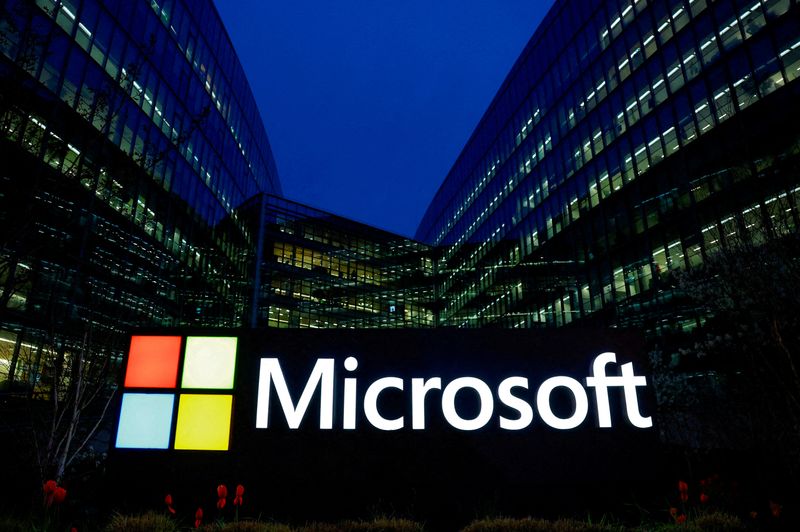By Trevor Hunnicutt and Alexandra Alper
WASHINGTON (Reuters) -Microsoft's deal to invest $1.5 billion in artificial intelligence firm G42 is "generally a positive development" because it forced the United Arab Emirates-based company to sever ties to China's Huawei, a White House official said on Monday.
"In a place like UAE ... where you had G42 working very closely with Huawei, for example, we have an interest in changing that picture," White House technology advisor Tarun Chhabra said.
"The effort to work with Microsoft (NASDAQ:MSFT) as an alternative to Huawei is generally a positive development and one that we want to encourage," Chhabra said at a Washington, D.C. event held by the Council on Foreign Relations think tank.
Washington has for years tried to convince allies to cut telecoms equipment giant Huawei from their networks given fears that Chinese company could spy on customers and pass on the information to Beijing. Middle East has also started to feature more prominently in the tech war between the United States and China as the competition to dominate artificial intelligence heats up.
As part of the deal announced in April, G42 would use Microsoft cloud services to run its AI applications and both companies made security-related assurances to the U.S. and UAE governments.
The New York Times said the agreement placed a series of protections on the AI products shared with G42, including an agreement to strip Chinese gear, including Huawei's, from the Emirati firm's operations.
Chhabra also said the Biden administration was carefully monitoring the roll out of AI systems, when asked if export controls on the software itself was on the table.
"We are keeping a close eye on the latest models as they are released, whether they are open sourced, whether they are proprietary," he said. "We want to know what are their capabilities."

Reuters reported in May that the Commerce Department was considering a new regulatory push to restrict the export of proprietary or closed source AI models, whose software and the data it is trained on are kept under wraps.
Powerful U.S.-made AI chips are already severely restricted from being shipped to China and countries deemed a risk for smuggling them into the country.
(Additional Reporting by Doina Chiacu and Karen FreifeldEditing by Tomasz Janowski)